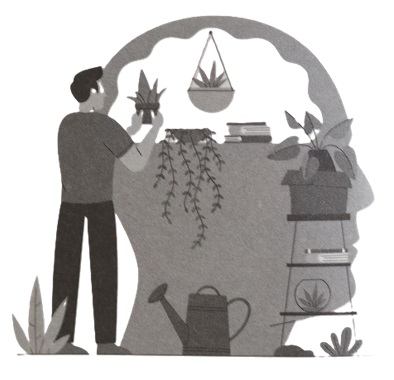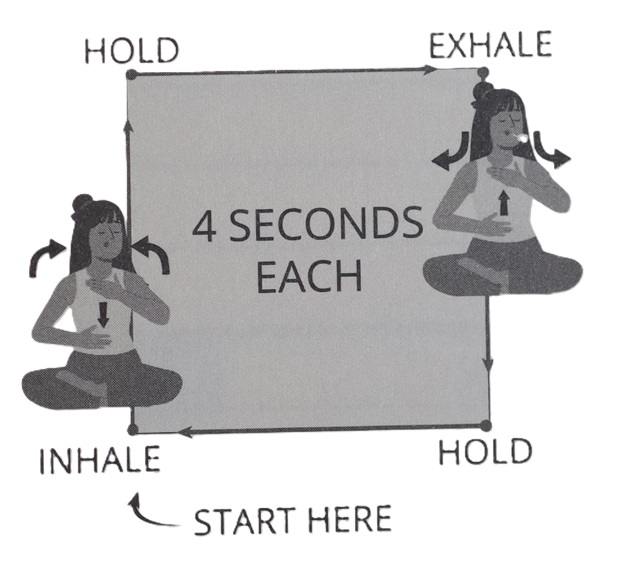- Tel: 07979 35 7979
- simon@maskuk.co.uk
- Bradford, West Yorkshire
Become An Instructor
Become An Instructor

Mask UK hope that we can provide you with the ability to handle lifes disapointments and setbacks. By building our resilience, we become better at withstanding stress and staying calm during difficult times.
Resilience is defined as 'the capacity to withstand or to recover quickly from difficulties'.
It is our ability to calmly and effetively avoid being overwhelmed by pressure, painful emotions, and the percieved feeling that the world is out to get us.
Resilient people still experience stress, but they back themselves to handle it and bouce back. They hang onto the belief that things can get better, even when the path forward is uncertain.
Resilience is not so much about learning to feel better, but rather a process of learning to get better at feeling bad.
It is also not something we are born with, Instead, it is a learnable skill, which we can cultivate as we purposefully cope with lifes inevitable changes and setbacks.
The key to building our resilience is a solid foundation of healthy habits when life is 'fine'. The basics of resilience you probably already know of.
These habits include: sufficient sleep, a healthy diet, social interaction, sustainable work-life integration, and time for exercise and the outdoors.
Resilient people also think differently to those who languish when life get hard.
That's because they understand that it isn't stressful, but rather out internal judgements and thoughts about those events and what they mean.
Resilient people are not surprised by setbacks. They prepare to deal with them by investing in their Mental Fitness skills. They think of problems as challenges to overcome rather than insurmountable obsticles.
When reflecting of meaning and growth in setbacks, they seek out and integrate new perspectives and prioritise on top of their foundation of habits.
Altogether, resilient individuals operate from a growth mindset rather than a fixed mindset, which ensures they keep searching for solutions to overcome the setbacks they face.
Through this website, you will discover new ways to think and act when confronted with setbacks.
The first important habit to notice and monitor our thoughts. As humans we can observe and think about our thoughts from a 'bird's eye view' helps us to catch ourselves when we are getting lost in loops of rumination or thinking in ways that leave us prone to anxiety and depression.
Aenean eget imperdiet orci. Aenean sit amet tristique nisl, ut rhoncus eros. Curabitur euismod, ante vitae iaculis consectetur, elit ex pharetra justo, vitae gravida justo ipsum ac nisl. Suspendisse vitae pellentesque dui, quis vestibulum massa. Donec tempus arcu et ornare tempor. Integer ut purus sollicitudin, pulvinar orci non, luctus odio. Suspendisse porttitor aliquet convallis.
To build this habit, we need to take moments out of the day to be still, undistracted, and reflect on what's happening in our minds. Additionally, we can employ more formal mindfulness strategies to observe our thoughts, such as meditation or journaling.
Aenean eget imperdiet orci. Aenean sit amet tristique nisl, ut rhoncus eros. Curabitur euismod, ante vitae iaculis consectetur, elit ex pharetra justo, vitae gravida justo ipsum ac nisl. Suspendisse vitae pellentesque dui, quis vestibulum massa. Donec tempus arcu et ornare tempor. Integer ut purus sollicitudin, pulvinar orci non, luctus odio. Suspendisse porttitor aliquet convallis.
When we notice our thoughts becoming negative or anxious, a second habit comes into play: becoming more skilled at tolorating uncomfortable emotions and feelings.
When difficult thoughts and emotions surface, we can learn to 'sit with them' rather than to avoid or supress them as we wait for them to pass. We can remember that thoughts are not facts, and that we don't have to believe them if they are unhelpful.
Finally, we can learn to reduce the impact of stressful situations as they occur.
The most easily accessible tool to turn to for this is focusd breathing, or what is sometimes called 'box-breathing'. This calms our automatic stress responce, taking us away from the classic 'fight or flight mode'.

By consciously following our breath in and out of our lungs, we give our nervous system permission to calm down. When calm, we make better decisions, are more capable of sitting with painful feelings, and can work our way logically through problems to find solutions and answers
Reflect: Consider the idea that our thoughts and feelings are not 'the truth', but instead often exaggerations or oversimplifications. For exampe: "My life will never get any better" might be a regular thought that we automatically believe, but when viewed objectively seems absurd and lacking in evidence.
Plan: Spend some time this month planning daily moments of silence or calm. In moments when you might habitually take out your phone for some distraction, instead 'check-in' with yourself and realy articulate what you are feeling.
Act: Learn to use your breath to calm yourself when you next feel overwhelmed. Replace fast, chesty, mouth-breathing with slow, deep, nose-breathing. Take conscious, slow in-breaths, deliberate, out-breaths that are as long or longer than your inhale. Repeat 3-5 times and repeat when ever you feel the need.